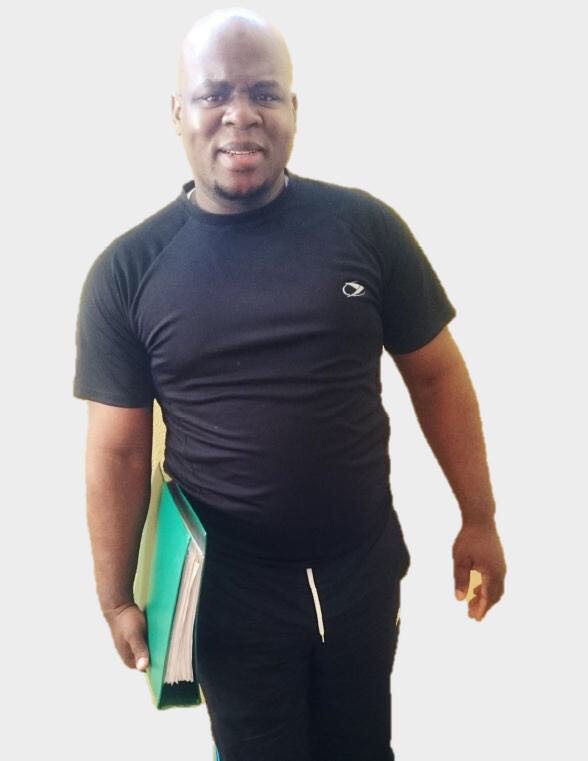Prisoner fights in court for fellow inmate with brain cancer
Court orders Mike Phahlamohlaka must be considered for medical parole
An inmate in a Tshwane prison has successfully taken the Department of Correctional Services to court for failing to consider a medical parole application of a fellow inmate who has a brain tumour and has become partially paralysed.
Piet Kgwatedi Mokwena saw how the health of his fellow inmate in Pretoria’s Kgosi Mampuru II prison, Mike Fikile Phahlamohlaka, deteriorated after he was diagnosed with a brain tumour in 2015. With his left side paralysed, Phahlamohlaka’s fellow cellmates had to bathe him, take him to the toilet, wash his clothes, dress him and fetch his food.
Nearly nine months after applying for medical parole in June 2016, Phahlamohlaka was still being cared for by fellow inmates. Mokwena, who is currently studying towards an LLB degree with UNISA, then brought the application to the North Gauteng High Court. He drafted the papers and represented Phahlamohlaka. On 18 April the matter was heard in court and it was ordered that Phahlamohlaka be considered for medical parole within 30 days. The court stated that within 24 hours of the decision being taken, Phahlamohlaka must be informed of the outcome.
Phahlamohlaka was sentenced to life imprisonment in May 2004. He has served 13 years of his sentence which would also make him eligible to be considered for ordinary parole.
Medical parole can be considered where an offender is “suffering from a terminal disease or condition or if an offender is rendered physically incapacitated as a result of injury, disease or illness so as to severely limit daily activity or inmate self-care”.
In 2015 Phahlamohlaka started experiencing blackouts and was sent to Kalafong Hospital. It was discovered that he had a brain tumour and he underwent surgery to remove a blot clot. Mokwena said that when Phahlamohlaka returned from hospital he looked “strong and healthy”.
Despite this, his condition deteriorated and by the time he returned from a second stint in hospital he was semi-paralysed. Plagued by seizures and increasing paralysis, he became unable to perform basic tasks for himself.
Mokwena said that though Correctional Services was aware of the situation the department did not attempt to ensure that medical personnel took care of him. Instead, his cellmates had to care for him.
After applying for medical parole in June 2016 it took about four months for Phahlamohlaka to be seen by the doctor who was preparing a report for the parole application. In December Phahlamohlaka was informed his application was being attended to and that he would receive feedback when the decision was taken. But Phahlamohlaka heard nothing and in March Mokwena filed his application in court.
In the application Mokwena cited Schabir Shaik and Jackie Selebi’s successful and quick applications for medical parole. Mokwena said that Phahlamohlaka’s family would be able to take care of him more effectively than his fellow inmates, and if his family was unable to take care of him they would take him to a hospice.
In an affidavit written by Phahlamohlaka he states that he authorised Mokwena to assist him in the application “due to my poor health and that I am semi-illiterate and further that I am not conversant with law processes and procedure in general”.
Mokwena said that Phahlamohlaka was currently in the prison hospital.
Spokesperson for the Department of Correctional Services, Logon Maistry, told GroundUp: “The medical parole application of the said offender is being processed. The process of considering the medical parole application of offenders is outlined in the Correctional Services Act, Act 111 of 1998. Such a decision will be communicated accordingly. With regards to the waiting time, each case is considered on its own merits as circumstances differ from inmate to inmate. The said offender is currently hospitalized in a 24-hour health care facility at the Kgosi Mampuru II Local Remand Detention Centre, and is receiving comprehensive nursing care provided by health care professionals. As the Department of Correctional Services, we remain committed to detaining all inmates in safe custody while ensuring their human dignity.”
This article was updated after publication with comment from Correctional Services.
Support independent journalism
Donate using Payfast

Don't miss out on the latest news
We respect your privacy, and promise we won't spam you.
Next: UCT and art: an exchange between Max Price and Belinda Bozzoli
Previous: Labour department can’t protect workers
Letters
Dear Editor
This is the kind of exposure the department needs.
Most of these government-employed officials feel like they are doing us, the public, a ''favour'' when they are in actual fact doing what they are employed and paid to do: serve all of us.
Why is it that certain individuals of certain class get first preference?
It matters not what your condition your are in, as long as you are not well connected, forget about getting any recommendation for parole.
Yet we say that we are living in a free and fair society.
Dear Editor
A story that is depressing because of the neglect of a prisoner's health and human rights, but also inspiring in showing how a fellow inmate has not only used his time in prison to develop legal expertise, but has used his knowledge in the service of another. I salute Piet Mokwena!
© 2017 GroundUp. 
This article is licensed under a Creative Commons Attribution-NoDerivatives 4.0 International License.
You may republish this article, so long as you credit the authors and GroundUp, and do not change the text. Please include a link back to the original article.

